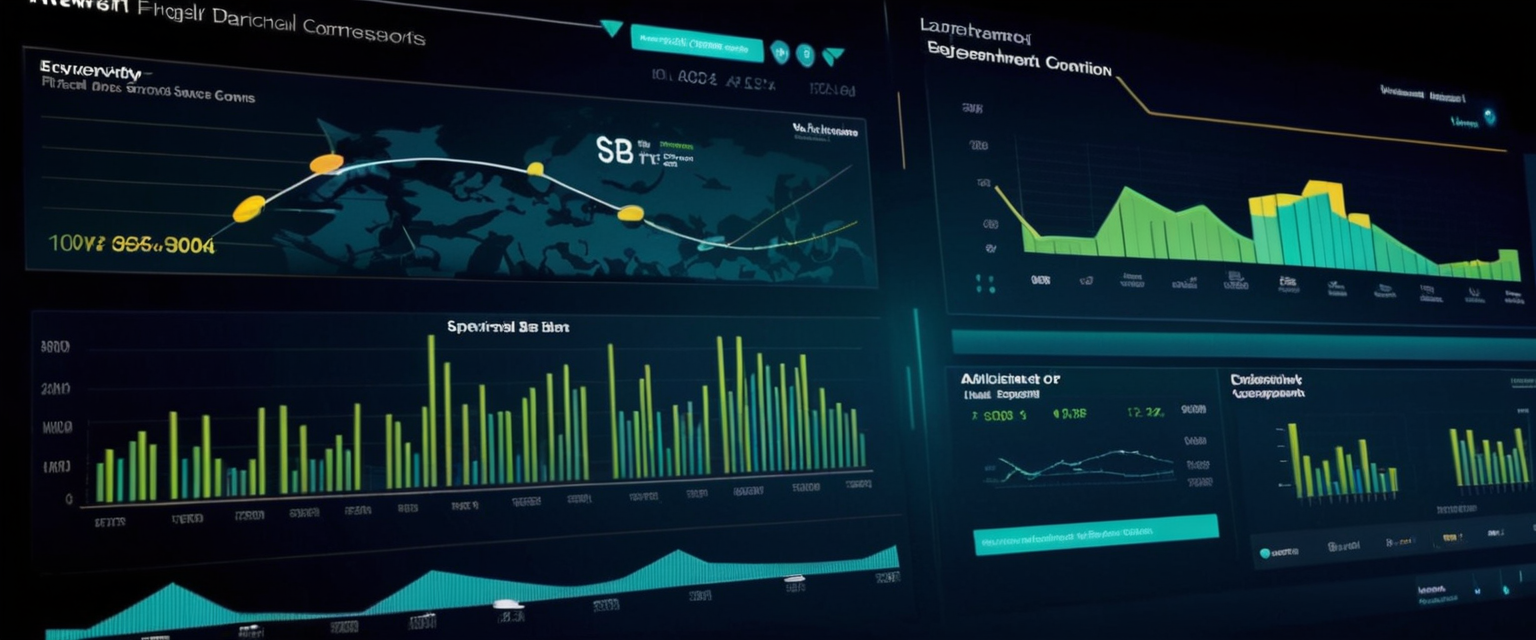
The cost of virtual private network services has become an increasingly critical consideration for consumers seeking to protect their digital privacy while managing their cybersecurity budgets effectively. This comprehensive analysis examines the annual pricing landscape of VPN services available to consumers in 2025, revealing significant variations based on subscription length, feature sets, and provider business models. Among those who pay for VPN services, the median monthly cost is $10, with most plans ranging from $2 to $15 per month, depending on features and subscription length. When examined on an annual basis, VPN services demonstrate a complex and often counterintuitive pricing structure that rewards long-term commitments with substantial discounts, creating a financial incentive system that fundamentally shapes consumer purchasing decisions. Understanding these costs requires examining not only the headline prices advertised by providers but also the underlying mechanics of subscription tiers, promotional strategies, and the hidden expenses associated with auto-renewal pricing that often catch consumers off guard when their initial subscription periods conclude.
The Fundamental Pricing Architecture of Annual VPN Subscriptions
Understanding the Monthly Versus Annual Cost Structure
The most striking characteristic of the contemporary VPN pricing landscape is the dramatic divergence between monthly and annually-calculated costs. When consumers commit to paying month-to-month without any long-term commitment, they typically encounter prices ranging from $9.99 to $17.99 per month across the most reputable providers. NordVPN’s monthly subscription, for instance, costs $12.99 per month for its Basic tier, which translates to approximately $155.88 annually before any discounts or promotional pricing. ExpressVPN’s Basic plan maintains a monthly cost of $12.99, similarly resulting in an annual commitment of roughly $155.88 if purchased through monthly increments. However, the financial calculus changes dramatically when consumers extend their commitment horizon to annual or multi-year subscription periods, where the average annual cost drops substantially to between $35 and $60 depending on the specific provider and tier selected.
This pricing stratification reflects a deliberate business strategy employed across the VPN industry, wherein providers offer increasingly aggressive discounts to incentivize longer subscription commitments. The theoretical annual cost of an average VPN is around $10 per month when calculated from month-to-month billing, representing a baseline reference point that virtually no consumer should accept given the substantial savings available through longer-term plans. In contrast, annual plans break down to an average of approximately $5.03 per month when the full-year cost is divided by twelve months, representing a fifty-five percent discount compared to monthly billing. The most aggressive discounts materialize within two-year and three-year plans, where the average effective monthly cost descends to approximately $3.87 per month, delivering a sixty-five percent savings compared to month-to-month pricing.
The Premium of Convenience Versus Long-Term Value
The economic principle underlying VPN pricing reflects fundamental business realities regarding customer acquisition costs and revenue predictability. When a VPN provider can lock in a long-term customer through extended subscription commitments, the company amortizes its customer acquisition and onboarding costs across a longer revenue-generating period, effectively reducing the per-month burden of attracting that customer. Additionally, from a cash flow perspective, companies collecting annual or multi-year payments upfront gain immediate access to revenue that would otherwise be distributed across twelve months or more, providing significant working capital advantages. The pricing structure essentially compensates providers for accepting this extended commitment risk and provides consumers with genuine savings for accepting an extended contractual obligation.
For consumers evaluating whether to accept the upfront costs associated with longer subscription periods, the financial mathematics strongly favor extended commitments, even when accounting for the thirty-day money-back guarantees that most reputable providers offer. A consumer who subscribes to NordVPN’s two-year Basic plan pays $2.99 per month when calculated across the full twenty-seven months of coverage, requiring an upfront payment of approximately $83.43 in total. This represents less than seven dollars per month of financial risk given the thirty-day refund window, making the long-term subscription an exceptionally low-risk investment for consumers willing to make the initial payment. The pricing strategy has proven sufficiently effective that leading industry providers have essentially discontinued meaningful month-to-month offerings, instead steering consumers toward annual and multi-year plans through both pricing incentives and website design choices.
Detailed Annual Pricing Analysis of Leading VPN Providers
Premium-Tier Providers and Their Annual Costs
NordVPN maintains the position of market leader in VPN services, and its pricing structure exemplifies the industry approach to annual subscription costs. The most affordable NordVPN plan, designated “Basic,” requires an annual commitment of $59.88 when paying yearly, or approximately $4.99 per month when calculated across twelve months. Upgrading to the “Plus” tier, which includes additional privacy features like Threat Protection Pro, costs $71.88 annually or approximately $5.99 per month. The “Complete” tier, offering password manager functionality and enhanced features, costs $83.88 annually or $6.99 per month. When consumers commit to NordVPN’s two-year plans, the effective annual cost diminishes further, with the Basic plan priced at $2.99 per month across the twenty-seven-month commitment, the Plus tier at $4.39 per month, and the Complete plan at $5.39 per month. Notably, NordVPN’s renewal pricing after the initial promotional period concludes is substantially higher, with monthly renewals charging $139 annually for the Basic tier, representing approximately fifty percent price increase relative to initial promotional pricing.
ExpressVPN, the second-most popular paid VPN service according to consumer surveys, employs a similarly tiered approach with three distinct subscription levels. The Basic plan costs $4.99 per month when calculated across a two-year commitment ($139 upfront), while the Advanced tier increases to $5.99 per month ($167.76 upfront), and the Pro plan reaches $8.99 per month for two years of service. When purchasing annually, ExpressVPN’s prices are considerably higher, with the Basic plan reaching $79.88 per year. For consumers paying month-to-month, ExpressVPN’s costs escalate to $12.99 monthly, representing an annual commitment of approximately $155.88 without the benefit of any long-term discount.
Surfshark, frequently highlighted as offering exceptional value relative to feature sets and performance metrics, prices its basic “Starter” plan at $1.99 per month when customers commit to a two-year subscription, totaling approximately $53.73 for the entire twenty-seven-month period including three complimentary months often included in promotional offers. The “Surfshark One” plan, adding additional security features including antivirus and breach monitoring, costs $2.19 per month on a two-year commitment. When calculated on an annual basis, Surfshark’s Starter plan reaches approximately $47.85 for the full year, or $3.49 per month when annualized. Monthly subscriptions cost $15.45 per month, making month-to-month Surfshark effectively equivalent to approximately $185 annually without discount.
Budget-Oriented Providers and Ultra-Low Pricing
The competitive landscape includes several providers that have positioned themselves at the extreme budget end of the market, offering annual costs that appear almost implausibly low when compared to traditional premium services. Private Internet Access, frequently recommended for budget-conscious consumers, prices its service at $3.49 per month when customers commit to a two-year plan, totaling approximately $83.76 for the full twenty-four-month period. The annual plan costs $5.99 per month or approximately $71.88 for the full year. Month-to-month pricing reaches $9.99, making the annual cost equivalent to approximately $119.88 without benefit of discount.
PrivadoVPN has gained recognition as offering the absolute lowest pricing among reputable VPN services, with pricing of just $1.11 per month for a two-year subscription totaling $30 upfront for twenty-seven months of coverage. This translates to an extraordinary effective annual cost of merely $13.32 when calculated across the full service period. Monthly subscriptions cost $10.99 per month, or approximately $131.88 annually. The service maintains strong privacy credentials and security features despite its remarkably low pricing, including unlimited simultaneous connections and comprehensive ad-blocking capabilities.
Several other budget providers merit consideration within the annual pricing analysis. Ivacy VPN prices its two-year plan at $2.25 per month ($60 total for twenty-six months), or approximately $27 annually when calculated across the full subscription period. The one-year plan costs $3.33 per month or $39.96 annually. VPN Unlimited offers annual pricing at $5.00 per month or $60 per year, with a three-year plan available at $2.78 per month totaling approximately $100 for the entire thirty-six-month period. SaferVPN prices its three-year plan at $2.50 per month, representing an effective annual cost of $30 across the full three-year commitment.
Protect Your Digital Life with Activate Security
Get 14 powerful security tools in one comprehensive suite. VPN, antivirus, password manager, dark web monitoring, and more.
Get Protected NowMid-Range Providers and Specialized Services
Between the premium leaders and extreme budget offerings exists a substantial category of mid-range providers serving specific consumer preferences or offering distinctive features. ProtonVPN, operated by the Swiss privacy-focused company Proton and frequently recommended for users prioritizing privacy and security, prices its VPN Plus plan at $4.99 per month when customers pay annually, totaling approximately $59.88 per year. The two-year plan reduces to $4.49 per month or approximately $107.76 for the entire twenty-four-month period. Monthly subscriptions cost $9.99 per month, equivalent to approximately $119.88 annually. ProtonVPN is distinctive in offering a completely free tier with no data limitations, providing unlimited data and no artificial speed restrictions while maintaining strict privacy policies.
CyberGhost, known for substantial server networks and reliable streaming capabilities, prices its two-year plan with four additional free months at approximately $2.19 per month, totaling $56.94 for the complete thirty-month period. The basic monthly subscription costs $12.99, representing an annual equivalent of approximately $155.88. Hide.me VPN offers annual plans at $4.57 per month or $54.95 per year, with a twenty-seven-month plan available at $2.59 per month totaling $69.95. Mullvad distinguishes itself through a fixed pricing model completely independent of subscription length, charging exactly €5 per month regardless of whether customers pay month-to-month or commit to multiple years, resulting in an annual cost of approximately €60 or roughly $64-66 USD at current exchange rates.
Windscribe prices its Pro plan at $5.75 per month when paid annually for $69 per year, or $9 per month for month-to-month billing. The service additionally offers a “Build A Plan” custom option charging $1 per location accessed per month, allowing budget-conscious users to construct minimal configurations. Bitdefender Premium VPN integrates VPN services within broader security suites, with pricing starting at $3.99 per month when annual plans are selected, totaling approximately $47.88 per year, though specific pricing tiers vary based on security product combinations.

Factors Influencing Annual VPN Pricing Variation
Geographic Considerations and Regional Pricing Strategies
An often-overlooked dimension of VPN pricing involves geographic considerations and regional variations that significantly impact the effective annual cost for consumers in different jurisdictions. NordVPN and several other major providers explicitly add local value-added taxes at checkout, meaning advertised prices do not represent the final amount consumers pay. In portions of the United States, this additional tax increases monthly prices by approximately eight percent, with some calculations showing that a NordVPN two-year plan advertised at $2.99 per month might effectively cost $3.23 per month after tax considerations. For consumers in the United Kingdom, the tax impact is substantially more dramatic, with the twenty percent value-added tax increasing effective costs by an additional twenty percent beyond advertised pricing.
Subscription Tier Differentiation and Feature-Based Pricing
The annual cost consumers ultimately pay depends not merely on the length of subscription commitment but also on which subscription tier or feature bundle they select. Most premium VPN providers offer three to five distinct tiers with increasingly comprehensive feature sets and corresponding price increases. NordVPN’s four distinct tiers (Basic, Plus, Complete, and Prime in the United States) differ in features including password manager inclusion, ad blocking capabilities, cyber insurance coverage levels, and additional security features, with annual costs ranging from approximately $60 to over $200 depending on selections. ExpressVPN similarly offers three tiers with progressively expanding feature sets and monthly costs ranging from $3.49 to $7.49 when annualized on two-year plans.
Consumers selecting the most basic tiers without additional features achieve the lowest annual costs from established providers, while those prioritizing comprehensive security bundles and integrated tools pay substantially more. This tiered approach reflects market segmentation strategies wherein providers attempt to capture consumers across the entire price spectrum from extreme budget-conscious users to premium customers willing to pay for comprehensive security ecosystems. A consumer purchasing only the basic VPN functionality might achieve an annual cost of $59.88 with NordVPN, while the identical consumer selecting the premium tier including all features might pay approximately $200 annually for the identical VPN service with bundled additional features.
Device Limitations and Simultaneous Connection Restrictions
While not directly affecting pricing on a per-device basis, the number of simultaneous connections supported by a subscription fundamentally influences the effective annual cost per device protected. Traditional VPN subscriptions have historically limited simultaneous connections to between five and six devices, though this restriction has evolved substantially in recent years. Surfshark pioneered the industry’s shift toward unlimited simultaneous connections, a feature now commonly advertised as a primary competitive differentiator. NordVPN and most premium providers limit simultaneous connections to between five and ten devices depending on subscription tier. For households with multiple connected devices including smartphones, tablets, computers, and smart home devices, the restriction to five or six simultaneous connections creates practical limitations requiring careful management and connection cycling.
PrivadoVPN’s positioning of unlimited simultaneous connections as a fundamental feature of even its lowest-priced plans means that the annual cost of $13.32 across twenty-seven months effectively translates to essentially zero additional cost per device when protecting households with ten, fifteen, or even unlimited connected devices. In contrast, consumers selecting providers with limited simultaneous connections must either carefully manage their device connections or accept that certain devices will remain unprotected by the subscription they have paid for. This functional consideration significantly impacts the true value proposition of annual VPN subscriptions, particularly for households containing multiple users and connected devices.
Hidden Costs and Renewal Pricing Considerations
Auto-Renewal Pricing and Substantial Rate Increases
One of the most significant and frequently underappreciated dimensions of annual VPN pricing involves what occurs when initial subscription periods conclude and subscriptions automatically renew at standard rates rather than promotional pricing. NordVPN explicitly charges $139 for annual Basic plan renewals after promotional periods, representing a fifty percent increase relative to the $59.88 promotional rate commonly offered to new customers. This dramatic price increase represents a substantial shock for consumers who fail to disable auto-renewal before expiration, as the renewal occurs automatically unless customers specifically intervene to cancel service. To protect against these unexpected charges, security experts and consumer advocates universally recommend disabling auto-renewal immediately after purchasing any VPN subscription, ensuring that consumers retain explicit control over when their payments are processed.
Surfshark and other premium providers implement similar renewal pricing strategies, though the specific increases vary by provider and subscription tier. ExpressVPN’s auto-renewal pricing is comparatively more favorable, with annual renewals approximately aligned with existing multi-year plan pricing rather than representing dramatic increases. Industry analysis suggests that the pattern of discounted initial pricing followed by substantially higher renewal rates represents a deliberate profit maximization strategy, with providers essentially accepting reduced margins on initial subscriptions to convert free users and compete for market share, then recapturing profitability through renewal pricing increases when customers become committed users unlikely to switch services.
Payment Method-Related Costs and Cryptocurrency Discounts
Some VPN providers offer financial incentives for specific payment methods, particularly for cryptocurrency payments which reduce the company’s payment processing fees. Mullvad explicitly offers a ten percent discount when customers pay with Bitcoin or other accepted cryptocurrencies, reducing its otherwise-fixed €5 monthly rate to €4.50 per month or approximately €54 annually with cryptocurrency payment. While this discount is smaller than the differentiation between monthly and annual billing for other providers, it nonetheless represents a meaningful incentive for consumers comfortable with cryptocurrency payments and seeking to minimize their annual VPN expenditures. Conversely, certain payment methods may incur additional fees or surcharges not explicitly disclosed in headline pricing.

Comprehensive Comparison of Annual VPN Costs Across Market Segments
A comprehensive examination of annual VPN costs across distinct market segments reveals substantial variations reflecting different business models, target demographics, and competitive positioning strategies. The budget segment, encompassing providers specifically targeting price-conscious consumers, achieves annual costs ranging from approximately $13 (PrivadoVPN at $1.11/month for two years) to $39.96 (Ivacy at $3.33/month annually). This budget segment typically sacrifices certain features common in premium services, including limited simultaneous device connections, smaller server networks, or reduced geographic coverage, to achieve these minimal price points.
The mid-range segment, encompassing providers balancing pricing competitiveness with comprehensive features, establishes annual costs between approximately $50 and $75, with providers such as Surfshark ($47.85 annually), ProtonVPN ($59.88 annually), and Hide.me ($54.95 annually) commanding these price points through offerings including superior speeds, extensive server networks, or bundled features like password managers or ad blockers. This segment represents the optimal value proposition for most consumers, offering sufficient feature comprehensiveness and performance reliability at reasonable annual costs that provide meaningful savings relative to month-to-month alternatives.
The premium segment encompasses market leaders including NordVPN, ExpressVPN, and comprehensive security suites like Bitdefender, establishing annual costs ranging from $60 to over $200 depending on subscription tier and feature selections. Premium providers justify these costs through marketing claims of superior speeds, more extensive server networks, advanced privacy features, and brand recognition established through years of market presence. Independent testing results frequently reveal that premium pricing does not invariably correlate with superior performance, speed, or security; many budget and mid-range providers deliver comparable functionality at substantially lower annual costs.
VPN Usage Patterns and Cost-Benefit Analysis for Consumers
Demographic Variation in VPN Adoption and Cost Sensitivity
Consumer adoption of paid VPN services demonstrates substantial demographic variation, with younger users, males, and those with greater technical sophistication exhibiting higher rates of VPN subscription adoption. Among Americans, approximately thirty-two percent currently use VPNs, with the eighteen to twenty-nine demographic representing the highest adoption rate at nearly forty percent, declining steadily to just under thirty percent among those sixty and older. Men utilize VPNs at a rate of thirty-nine percent compared to women at thirty percent, suggesting potential differences in perceived privacy concerns or technical comfort levels. For the majority of VPN users, cost considerations substantially influence subscription decisions, with forty-four respondents out of one hundred seventy-one discontinuing VPN service reporting cost as the primary reason for abandonment.
The substantial cost sensitivity demonstrated by VPN users suggests that annual pricing remains a critical decision factor in service selection, potentially explaining the intense competition in the budget segment of the market where providers have reduced annual costs to unprecedented levels. Approximately twenty-eight percent of VPN users currently rely on free VPN services despite well-documented security risks, suggesting that substantial consumer populations would abandon paid VPN services entirely rather than accept annual costs exceeding approximately $120-150. This price sensitivity threshold has effectively created a ceiling on annual VPN pricing for consumer services, explaining why even premium providers hesitate to increase annual plan pricing beyond approximately $200 and why budget-focused competition has intensified substantially in recent years.
Primary Use Cases and Justification of Annual VPN Costs
Consumer motivations for VPN adoption influence the justifiable annual price point, as some use cases justify substantially higher annual expenditures while others support only minimal cost commitments. Approximately thirty-seven percent of VPN users report that reducing tracking by search engines and social media platforms represents their primary motivation. For these privacy-focused users, annual VPN costs of $50-75 represent trivial investments relative to the value of maintaining privacy from pervasive digital tracking systems. Nearly one in four VPN users, approximately twenty-three percent, leverage VPN services specifically to access streaming content unavailable in their geographic region. For these users, VPN reliability and server diversity in streaming-friendly geographic locations justifies selection of mid-range providers in the $50-75 annual price range rather than budget alternatives that frequently fail to unblock streaming services.
Industry Economics and Market Trends in VPN Pricing
Industry Revenue Growth and Market Expansion
The VPN industry has demonstrated exceptionally strong revenue growth in recent years, with the United States VPN provider industry recording a compound annual growth rate of thirteen point eight percent, with revenues projected to reach $3.6 billion in 2025. This substantial market growth reflects both increasing adoption among existing consumers and expansion of the total addressable market to previously untapped demographic segments. The global VPN market was valued at approximately $44-50 billion during 2022-2023 and is projected to reach $75-88 billion by 2027, with annual growth rates of approximately fifteen to seventeen percent anticipated through the remainder of the decade. This robust expansion has attracted intense competitive pressure and pricing competition as new market entrants attempt to acquire market share from established providers.
Despite these favorable revenue growth projections, industry profit margins have faced substantial pressure, with the US VPN industry expected to maintain profit margins at approximately fourteen percent throughout the 2025-2030 period despite revenue growth. This margin compression reflects substantial capital expenditures required to maintain competitive infrastructure, including investments in high-performance servers, network infrastructure, and security technologies required to meet escalating consumer expectations. Leading providers including NordVPN and Proton VPN have committed substantial resources to deploying bare-metal servers, implementing RAM-only technology, and establishing widespread 10 gigabit-per-second network nodes, representing significant ongoing capital requirements that limit industry profitability despite growing revenues.
Pricing Strategy Implications and Consumer Expectations
The fierce competitive intensity in the VPN market has driven unprecedented pricing reductions at the budget end of the market, with annual costs for reputable services declining from historical ranges of $60-80 annually to contemporary ranges of $13-39 annually for budget-focused providers. This race toward lower pricing has created substantial consumer expectations for minimal annual VPN costs, with free VPN services continuing to attract approximately twenty-eight percent of VPN users despite well-documented security risks and performance limitations. The existence of ultra-low-cost providers at $1-2 monthly rates has effectively reset consumer price expectations, making it increasingly difficult for premium providers to justify annual costs above $100 without substantial differentiation through superior performance, more extensive server networks, or additional bundled features.
Your Annual VPN Investment: Key Takeaways
The landscape of annual virtual private network pricing in 2025 presents consumers with unprecedented choice across an exceptionally wide price spectrum, ranging from truly free offerings with substantial limitations to premium services exceeding $200 annually with comprehensive feature bundles. The fundamental economic reality underlying all VPN pricing demonstrates that longer subscription commitments produce substantially lower effective monthly costs, with annual plans typically delivering fifty to fifty-five percent savings relative to month-to-month billing, and multi-year commitments providing sixty to sixty-five percent savings. For consumers seeking to minimize annual VPN expenditures while maintaining security and privacy, budget-focused providers including PrivadoVPN, Ivacy VPN, and SaferVPN deliver annual costs of $13-40 while maintaining credible privacy policies and fundamental security features. Mid-range providers including Surfshark, ProtonVPN, and Hide.me deliver annual costs of $50-75 combining affordability with comprehensive features and reliable performance. Premium providers including NordVPN and ExpressVPN command annual costs of $60-200 depending on subscription tier, justified primarily through brand recognition, marketing investments, and bundled additional features rather than demonstrably superior technical performance.
The financial mathematics strongly favor accepting multi-year subscription commitments despite higher upfront costs, as the thirty-day money-back guarantees offered by virtually all reputable providers create minimal financial risk for consumers testing services before committing. For households containing multiple users and connected devices, unlimited simultaneous connection features become critical value multipliers, as they effectively distribute VPN costs across numerous devices rather than requiring separate subscriptions or accepting limited device protection. Consumers should universally disable auto-renewal immediately upon subscription to prevent unexpected substantial price increases when renewal billing occurs, typically fifty percent higher than promotional initial pricing. The VPN industry’s continuing evolution toward increasingly aggressive pricing competition suggests that annual costs will continue declining at the budget end of the market, while premium providers will likely maintain current pricing levels by emphasizing bundled features and brand positioning rather than attempting to compete on cost alone. For most consumer use cases involving privacy protection and streaming access, mid-range providers at $50-75 annual cost provide optimal value relative to premium alternatives commanding double these prices without necessarily delivering proportional performance or feature improvements.






